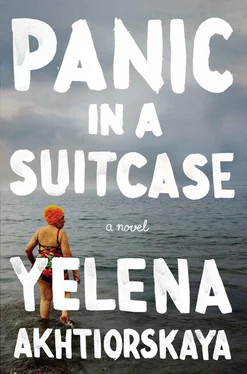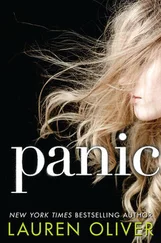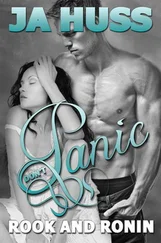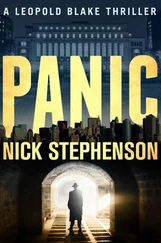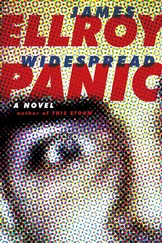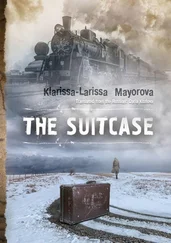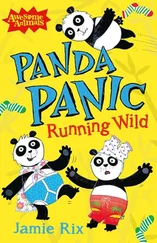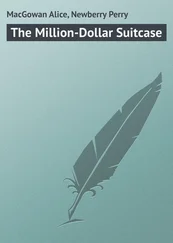If it was being offered, Esther was willing, sign her up. Sickness from treatment was preferable to sickness from disease. There was almost an invigorating aspect to it. The fact that she wasn’t well meant that she was getting better — the treatment was working, and she only wanted it to work more, fearing that she wasn’t suffering enough. She pressured Marina to pressure the doctors for more chemo, stronger radiation, additional sessions, newer drugs — she was strong, she could take it. Sure enough, in many instances the doctors could be convinced. When she suffered third-degree burns, they saw no reason to take the blame.
At least the hospital had been fortuitously plopped on the Upper East Side of Manhattan — you must take advantage, said Esther. No need for them all to sit for hours in the soul-crushing, disease-saturated atmosphere just because she had to. What a waste of a wonderful opportunity. Robert would keep her company. The two of them would rattle sugar packets, visit bedecked mansions in the high resolution of real-estate magazines, play card games as treatment was intravenously delivered. Marina had done more than enough; there was simply no one left to bother. Hospital employees shuddered at the drum of her footsteps, secretaries twitched as she advanced to their posts. And it must be remembered that Pasha was in New York for a limited time only. Siblings should spend quality time together.
Illness has made Mama generous, said Pasha, falling behind to let Marina start up the revolving door. She must be in negotiations with the mighty powers.
She wants to be left alone.
Don’t we all? Pasha was unable to dislodge a bone. She’s always terrorized me, a recent claim. Last summer’s conversation proved but a glimpse — Marina had no desire to see more. Where to, she said, Metropolitan or Guggenheim?
Actually, said Pasha, I’ve been intending to make a purchase.
Canal Street was where the train spit them out. Pasha’s request, yet he stood frozen. Struck dumb by tourists in bold T-shirts. The insignia on baseball caps bled together into one strange character of an alien alphabet constituting precisely the terrible nonlanguage of the street. Calamity was the result of such senseless diversity. Each nationality had its own approach to shopping. In some countries if you wanted a plastic turtle, you pushed, in others you formed lines and were mercilessly cut off. Everybody, however, regardless of origin, wanted to be heard. And to be heard it was necessary to shout. Second opinions were in urgent demand. Aggressive shopper personalities were activated for purposes of basic protection. People trying to preemptively avoid a mishap in which they looked foolish or got squeezed out of a few bucks were at their worst. They needed to multitask (not the species’ strong suit), evaluate several things at once — an object’s value in relation to its price, their personal need for that object, how it looked on their head or wrist or dangling from their tan-lined shoulder, how comfortable they were with the knowledge that the object was a replica, and how to deal with this knowledge, whether to allow others to draw their own conclusions or tell everyone, including those who didn’t ask, that only four dollars had been spent.
A mere shpritz of adrenaline cut Pasha’s whole system off from power. He proceeded to stand, blink, and stroke his beard. Grabbing hold of Pasha’s hand, Marina led the way, exasperated by the situation. She’d been employing all her powers of persuasion to push the department-store experience — they could go to a store like Macy’s for good-quality apparel, something practical and useful so that he wouldn’t always be walking around in ill-fitting hand-me-downs, where they’d also find something for Sanya — a cool pair of jeans, a denim jacket — not to mention that Nadia couldn’t be completely overlooked. But Pasha wanted a watch, and only Canal Street would do. This galled Marina. The entire business was distasteful, like the way her friends bought dresses from Saks only to wear them once, then return for a full refund. Not Marina. Since she didn’t have the means for brand names, she’d do without.
If a stigma was involved, Pasha didn’t seem concerned. Marina gave other options — Kings Highway was lined with stores that sold elegant, inexpensive watches. Look at Levik’s. So it’s not Swiss-made. Who can tell the difference? Like talking to a wall.
They exited the purse forest, entered a field of dial faces. Ugly fungal watches sprouted from wooden crates, plastic tables, suitcases propped on fire hydrants. Vendors kept up a steady barrage of hushed solicitation. A few reached out and grabbed. Marina shook off their Hey, miss! and Hey, lady! knobby fingers, musky smells. It felt like Turkey, 1983. The fear, the shame, the disgust. She stopped abruptly. Her own fingers, giving Pasha much reassurance, unclamped. Go ahead, she hissed, pick.
Pasha weighed a few options but didn’t delay, plucking the most sparkle-studded, yellow-bright Rollex in the batch.
Marina relied on facial contortion to communicate her feelings. Pasha advised she buy a pair of sunglasses; there was no shortage of options. Voice would have to deliver. You want that ? she said.
You prefer another?
They’re all hideous, Pasha, but that’s an absolute monstrosity. She glumly lifted the flap of her crappy-but-honest purse, proffering a five-dollar bill like a crumpled sock. I just don’t get what this is about, she said.
Pasha’s wrist held out, Marina fastened the clasp. Tutoring, he said.
Marina failed to comprehend. Releasing Pasha’s arm, she recalled walking out along a narrow pier so high that the water underneath wasn’t visible and holding tightly on to the arm of a man who wasn’t Levik. She stared at his neck as he stared at a tiny cargo ship wrapped in silky flame. There was a terrible screeching sound as he lifted his other hand, in which he held a dirt-caked shovel. Oh, said Marina. For the mothers?
Mothers weren’t the issue. Pasha could get work from them regardless. The watch was for the kids, hardly a fitting term for two hundred fifty pounds of pure muscle — adults with deficiencies, a more apt description. They were practically illiterate, spoiled, hopeless, but what else was new? The problem was a rampant obsession with status. At the whiff of financial desperation (and why else would anyone tutor?), they stopped being bored, became vicious. You didn’t have to be a hound to smell it on Pasha. In perhaps their only demonstration of logical reasoning, they figured, if you’re poor, I should be learning how to not be like you. The watch would take care of that. He’d just have to remember to stash it in his pocket before going to the institute, so as not to upset the doctors.
They walked a few blocks north, tending their thoughts. Where next? asked Marina.
Her brother was a weak old man, almost forty, couldn’t take more. But if she was ambitious enough to continue to Macy’s, he wouldn’t mind waiting. Were they far from the Frick?
Speechlessness launched Marina. There she went… fiery, short-fused Marina, zooming up the avenue. Her hair looked angry. Pasha could see it from far away, in a dense mass of bobbing heads, by far the angriest hair. Each strand a heated needle. She stopped on the corner, pressed her back to the traffic. In a state, she forgot herself completely. Her arms, too tense to rest at her sides, froze at odd angles, as if she were beginning to lift off. Her eyes searched frantically for Pasha, finding him only when he’d blocked her sun.
• • •
THE SILVERY GLEAM under the couch had been spotted by Frida as she was being ushered off to day camp without a second to spare. Eight agonizing hours of locker-room changing, double-line forming, bologna-sandwich deconstructing, backflip attempting later, when let into the apartment again by Miss Gala, the severe emerald-eyed lady substituting for Esther in pickup duties on hospital days, Frida made a beeline for that couch. All that anticipation proved not for naught. Silvery gleam had weight.
Читать дальше
